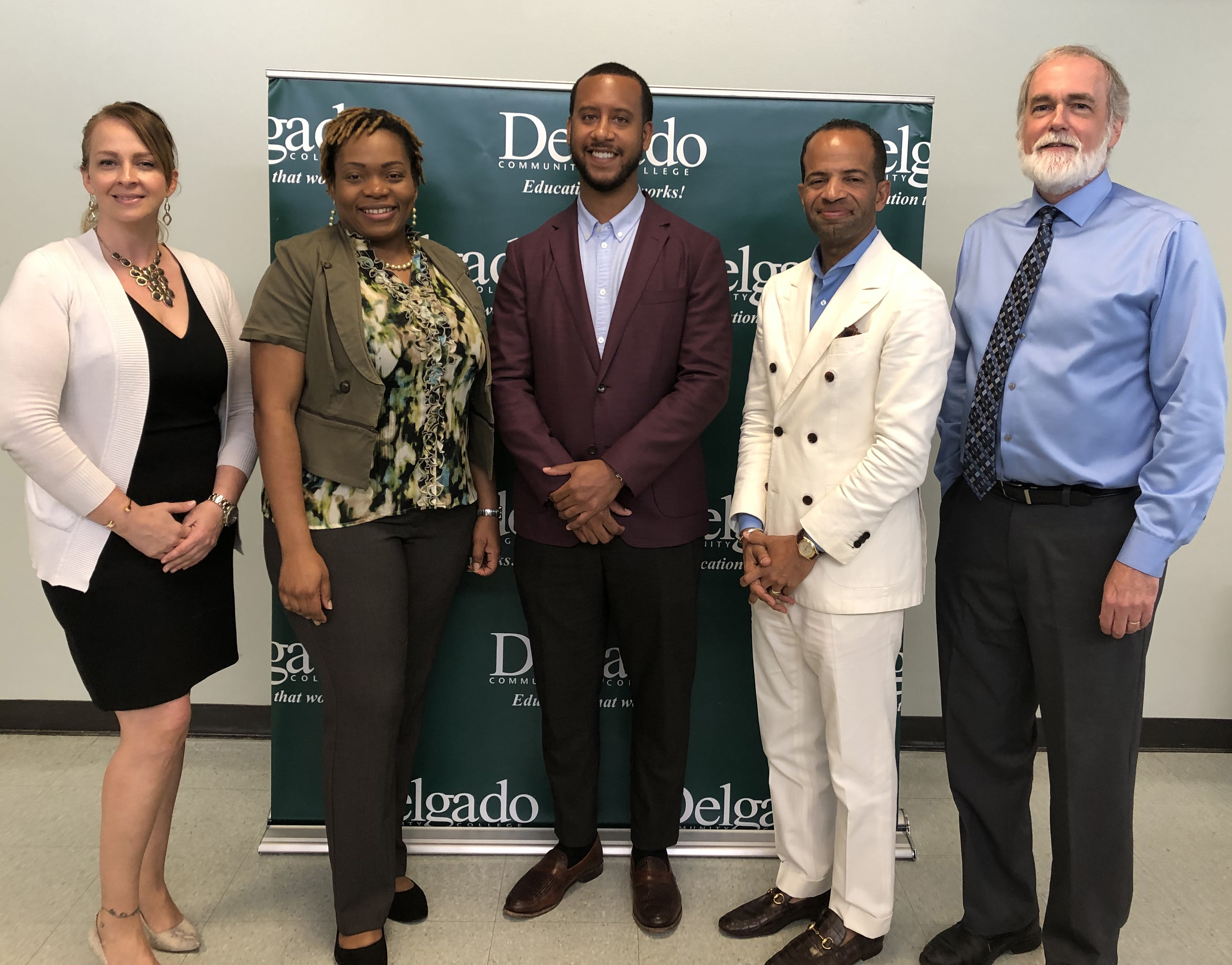Header Two
Delgado Spearheads Creation of Higher Education Consortium to Reduce Food Insecurity
May 10, 2019
Do you know where your next meal is coming from? Try to imagine your life without knowing the answer to that question.
Higher education goals are difficult enough for many to achieve, but students who deal with food insecurity find that completing their education and improving their lives are even greater challenges.
According to the report “Hungry at the Banquet: Food Insecurity in Louisiana 2018” conducted by the Jesuit Social Research Institute at Loyola University New Orleans:
- 48% of community college students report being food insecure.
- Louisiana has the second highest rate of food insecurity in the United States.
- New Orleans/Metairie leads the top ten metropolitan areas in the state struggling with food insecurity.
- Food banks or pantries were designed to be short-term assistance although people facing long-term deprivation currently rely on them.
At Delgado Community College’s Single Stop, the food pantry has served over 1,500 students and their families since opening in 2015.
“Education is seen as a vehicle to change a student's economic circumstance. It is used as a tool to lift individuals out of poverty,” said Gilda Ebanks, director of Single Stop at Delgado. “For so many, obtaining an education comes with many barriers. Food insecurity ranks high on the list.”
To broaden awareness and discussion about the issue, on Friday, May 3, Delgado Community College hosted a community meeting to examine the impact of food insecurity on college students. Delgado invited representatives from local two- and four-year higher education institutions, along with community partners, to join in the conversation.
“The response from our peer institutions was extremely supportive,” said Dr. Arnel Cosey, Delgado vice chancellor for student affairs, who opened the discussion. Administrators, faculty, staff and students from Dillard University, Loyola University, Tulane University, Xavier University, Southern University at New Orleans, University of New Orleans, Nunez Community College and Delgado Community College participated.
Dr. Corey Hebert, local physician, journalist and educator, spoke about the importance of healthy living—specifically, how healthy eating leads to a quality lifestyle and academic success.
In addition to Hebert, panelists included: Carrie Welton, policy analyst, Center for Law and Social Policy (CLASP); Ahoefa Agbobli, Delgado nursing student and Single Stop user; Korey Patty, executive director, Feeding Louisiana; Dennis Kalob, economic policy specialist, Jesuit Social Research Institute at Loyola University.
Every local two- and four-year institution represented at the meeting signed an agreement to form a local collaborative to address food insecurity on college campuses.
Delgado is now working with peers and partners to form a citywide higher education food insecurity council that will enhance existing efforts and find additional ways to confront the challenge. National policy thought leaders from CLASP will assist with developing the framework to move the initiative forward.
“Learning feeds the mind and the intellect--but without food for the body, learning cannot nourish the healthy, happy lifestyles we want to see every one of our students enjoy,” said Dr. William Wainwright, interim chancellor of Delgado Community College. “I am very proud of the efforts spearheaded by the Delgado Student Affairs staff to deal with food-related issues among students in our Delgado community. Delgado Community College looks forward to working with our higher education and public health partners to end food insecurity among all college students in the New Orleans region. The accomplishments of this new consortium will have a lasting impact for generations to come,” said Wainwright.
“It is our hope that the creation of this consortium increases awareness and produces systematic changes to alleviate the number of food insecure students within our two- and four-year colleges and across our communities at large,” said Ebanks.
“I am honored to have been a part of the inaugural event of the New Orleans Higher Education Food Insecurity Collaborative and I am encouraged by the leadership and commitment of these institutions to ensure all students are able to meet their basic needs,” said Carrie Welton, policy analyst with CLASP. “A college degree is one of the most reliable pathways to economic security and I applaud each of these institutions for advancing the needs of their students and their ability to chart their own course to economic mobility.”

